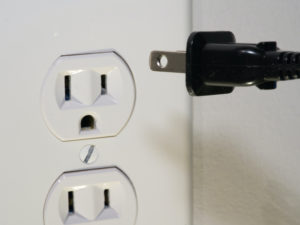Electrify Your Heating
Electrification technologies are rapidly becoming more cost-effective and more reliable than fossil-fuel systems. Additionally, the electric appliance market is expected to grow exponentially in the next decade, leading to both better and cheaper electric options. While electrifying buildings is expected to save money overall, in the short term, the upfront costs of appliances can be more. But with a natural gas system, the cost of energy has little to do with the cost of fuel and everything to do with infrastructure maintenance.
We need our homes to be safe, healthy spaces—and that’s one of the major reasons communities are working to replace gas with clean energy inside our homes. Although the movement to electrify buildings is focused on the residential sector, the awareness of electric alternatives and the development of more appliances is influencing decisions in the commercial world, as well.
The average household spends more than $2,200 a year on energy bills, with nearly half of this going to heating and cooling costs. Make smart decisions about your home’s heating, ventilating, and air conditioning (HVAC) system that can help save on energy costs, improve your overall comfort at home, and help fight global warming. There are plenty of energy-efficient systems, such as electric heating options, available for every budget to help you stay comfortable year round, and save you money in the process.
ELECTRIC HEATING OPTIONS:
- Heat pumps are very efficient compared to traditional heating systems—homeowners are comfortable year-round and can save on the heating portion of their bill during cold winter months. On average, heat pumps are two and a half times more efficient than electric baseboard or oil-fired heating. They also improve the indoor air quality of a home (heat pumps have a very good air filtration system, which is helpful for anyone suffering from allergies or other health conditions). And they rate high for dehumidification. If someone has a humid basement, a heat pump will act as a dehumidifier—and will be more than twice as good on power as a regular dehumidifier.
- Electric Thermal Storage unit (ETS). Compared to a traditional electric-based space heating system, which uses power on demand and draws electricity whenever it’s needed, the ETS is programmed to take advantage of the lowest time-of-day power (TOD) rates. It draws and stores energy during off-peak hours when rates in the province are nearly half the regular rate. And it can provide heat even in the event of a power outage in winter. The fully charged bricks will stay warm for a few days. While the fans wouldn’t work, the warmth from the bricks would radiate and help keep the rooms warm. ETS units are clean and low maintenance, and require no oil or propane deliveries.
- Electric water heaters are an economical, safe and reliable heating option. It costs less to buy and install an electric hot water tank than an oil- or gas-fired system. Such tanks are high-efficiency Energy Star rated, they’re clean and reliable, and you can use heat pump technology to heat your hot water.
However, the most important component of an energy-efficient home heating system isn’t necessarily the system itself, but how well your home uses the system’s output. Sealing leaks in the doors, windows, walls, and floors should be your first priority. Insulation, caulk, and weatherstripping may be necessary around windows, doors or other drafty spots.
In an existing house, the first step is to conduct a free home energy audit. These surveys are used to find out how your home uses energy and determine the best ways to cut energy use and costs. These small steps are worth the investment,
Another incentive? There are many rebates and loans available to help you upgrade to high-efficiency home appliances. Go to the Efficiency, Rehab, and Remodel Loans and Rebates section of the Community Initiatives page to find out more.
Did you take this action? Report it!
Help us show our collective community impact by reporting that you took this action.
